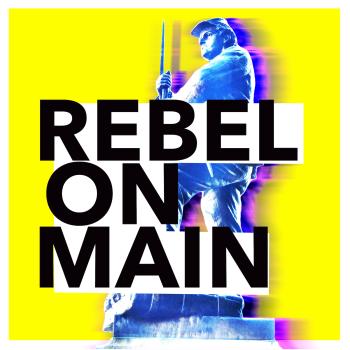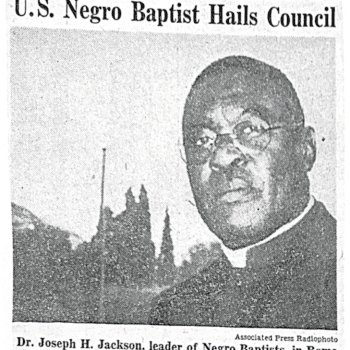I recently read Travis Glasson’s excellent book Mastering Christianity: Missionary Anglicanism and Slavery in the Atlantic World (Oxford, 2012). This book details the complex relationship between enslaved people, slave masters, and the missionaries of the Anglican Society for the Propagation of the Gospel (SPG), which began a major outreach effort to the North American colonies in the early 1700s. Many of the pioneer missionaries found aspects of the lower South’s slave society quite troubling, but they also found it difficult to maintain a prophetic edge against the institution. Doing so would risk losing the support of many white Anglicans, something they could not afford.

One of the most fascinating Anglican missionaries was Francis Le Jau. Le Jau sought to bring the gospel to Carolina Africans, assuring slave masters that doing so would not cause any trouble. (Many slave masters worried that introducing slaves to Christianity would make them unruly, or, in the worst case, require masters to emancipate slaves who were now fellow Christians.) Le Jau struggled to convince many whites that blacks and Native Americans were more than “beasts,” and he spoke out against the appalling treatment of many slaves. One slave woman was burned to death almost at Le Jau’s doorstep, after being accused of burning down her master’s house. Le Jau said he saw no evidence to suggest that she had committed arson. He also denounced the lurid punishments directed against slave runaways, including the amputation of various body parts.
But Le Jau himself would not question the legitimacy of chattel slavery itself, and he worried about the consequences of slave instruction and literacy. Glasson relates one remarkable episode in which Le Jau’s finest African student started to “create some confusion among all the Negroes in this country.” The slave read a book, either the Bible or perhaps a commentary, that explained the coming judgment of God in the last days. The man promptly communicated the prophetic forecasts to his master. Apparently quoting Joel 2, he told the master that “the moon would be turned into blood” and the sun would be darkened. What else he told the master, and to what end, is not clear, but it obviously troubled Le Jau, who told his slave student not to “put his own constructions upon his readings after that manner.” He told SPG officials that he was not sure that all Africans or Native Americans had the capacity to “make a good use of their learning.” In spite of his courageous witness against slavery’s abuses, Le Jau went on to own several slaves himself.
Like many Anglicans, including evangelical luminaries such as George Whitefield, Le Jau was sensitive to the particulars of slave mistreatment, but did not see chattel slavery’s inherent indignity. Thus, some of the most evangelistically-minded Christians of the eighteenth century bolstered the institution of slavery. But it was impossible to keep certain African and African American Christians like Le Jau’s student from appropriating Scripture’s prophetic edge, warning masters of the impending wrath to come.
Friends, if you haven’t already done so, I encourage you to sign up for the my newsletter. Each newsletter will update you on what’s happening in the world of American religious and political history. It will contain unique material available only to subscribers, and each will help you keep up with my blog posts, books, and other writings from around the web. [Your e-mail information will never be shared.] If you’re interested, you can sign up here.












